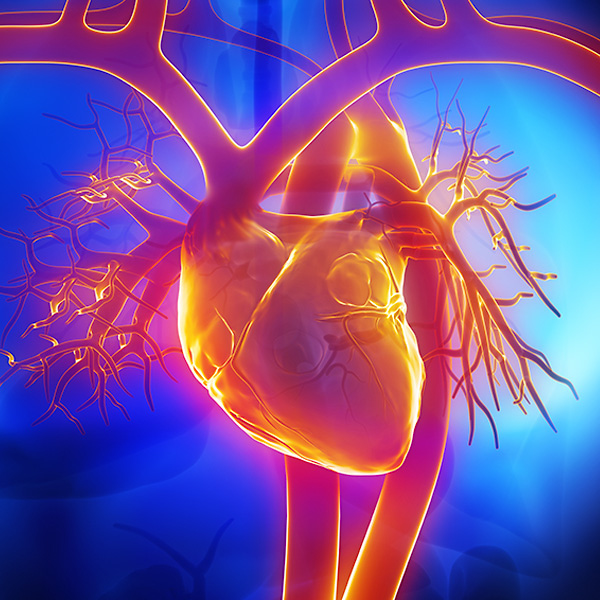Coronary Artery Disease
Overview and Facts about Coronary Artery Disease
Coronary artery disease occurs when the major blood vessels that supply the heart become damaged or diseased. When they’re healthy, these blood vessels deliver blood, oxygen, and nutrients to your heart and body.
Coronary artery disease often develops slowly over decades as cholesterol-based deposits (called plaque) build up on the interior of your arteries, slowing blood flow. Over time, the impacts of this heart condition can lead to significant blockages or a heart attack.
Signs and Symptoms of Coronary Artery Disease
As plaque builds up on your arteries, your body no longer supplies enough blood and oxygen to your heart. Although this may not cause noticeable symptoms right away, as the disease progresses you may experience:
- Chest pain, tightness, or pressure
- Shortness of breath, especially with exertion
- Heart attack signs, including severe chest pain, pain in the left arm or jaw, and sweating
Causes and Risk Factors of Coronary Artery Disease
Like other heart conditions, coronary artery disease often results from a combination of factors. Some of these can include:
- Smoking
- High blood pressure
- High cholesterol
- Type 2 diabetes
- Sedentary lifestyle
Although anyone can develop coronary heart disease, certain risk factors have been identified. The more risk factors you have, the greater your risk of developing heart conditions, including coronary artery disease. Some of the most common risk factors include:
- Old age
- A family history of heart disease
- Smoking
- Uncontrolled blood pressure or cholesterol
- Metabolic conditions such as thyroid conditions and type 2 diabetes
- Obesity
- Physical inactivity
- Unhealthy diet
- High stress levels
Tests and Diagnosis of Coronary Artery Disease
If your doctor suspects that you may have coronary artery disease, they will perform a thorough physical exam and family history. To confirm or rule out the diagnosis, they may require certain procedures and testing. These could include:
- Electrocardiogram
- Echocardiogram
- Stress test
- Nuclear stress test
- Ultrasound
- Cardiac MRI
- Cardiac CT scan
- Cardiac catheterization and angiogram
Treatment and Care for Coronary Artery Disease
If you have been diagnosed with coronary artery disease, your doctor will work to lower your risk of a heart attack, and slow the progress of the disease. In many cases, this can be accomplished through lifestyle changes like:
- Quitting smoking
- Eating healthy
- Exercising regularly
- Reaching and maintaining a healthy weight
- Reducing stress
In some advanced cases, medications may be necessary. Depending on your specific situation, your doctor may recommend a medication that lowers your cholesterol, or thins your blood. Other medications your doctor may prescribe include:
- Beta blockers
- Calcium channel blockers
- Ranolazine
- Nitroglycerin
- ACE inhibitors
In extreme cases, your doctor may recommend a surgical procedure to help improve the flow of blood to your heart. The two most common treatments include a coronary artery stent, which opens the artery to allow more blood to flow through; the other type of surgery is a coronary bypass surgery, where the doctor uses an artery from your leg to bypass a blockage near the heart.

Request an Appointment
Loyola Medicine heart and vascular specialists have the experience and technology to treat the most difficult cardiac and vascular conditions. Schedule an appointment today.
Schedule a Telehealth Appointment
